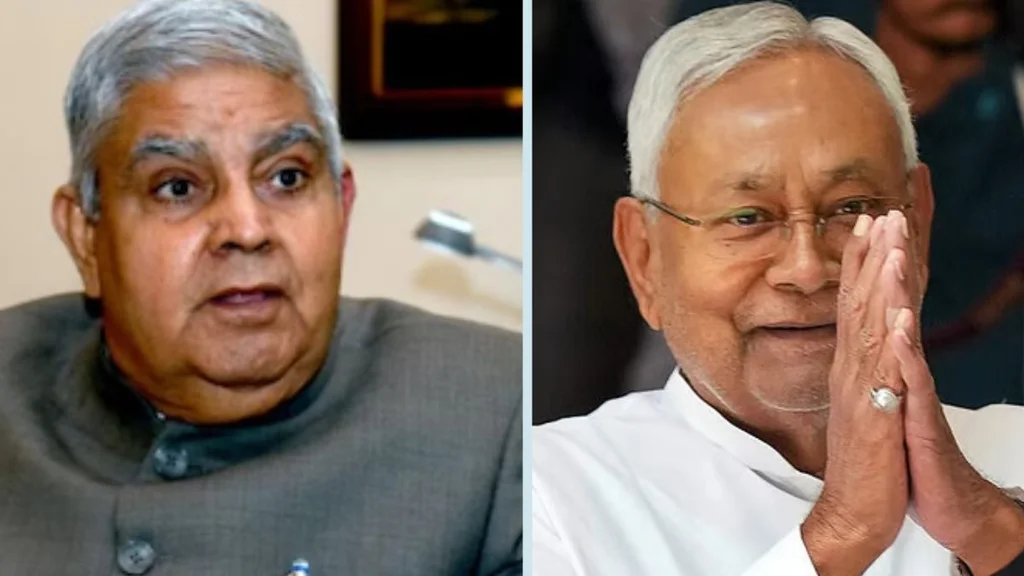Following the sudden resignation of Vice President Jagdeep Dhankhar citing health concerns, political circles and social media platforms have been abuzz with speculation—could Bihar Chief Minister Nitish Kumar be the next Vice President of India?
Dhankhar tendered his resignation late Monday evening, attributing his decision to health-related issues. Since then, discussions have erupted across TV debates, political forums, and public discourse about the potential successor, with Nitish Kumar’s name leading the conversation.
A Strategic Move Ahead of Bihar Elections?
With state assembly elections in Bihar just months away, rumors suggest that the Bharatiya Janata Party (BJP) and the Modi government could be planning a masterstroke by nominating Nitish Kumar for the Vice Presidential post. Such a move could help BJP recalibrate its political narrative in the state while subtly reshaping leadership dynamics.
Amid these developments, opposition parties have raised eyebrows over the timing and circumstances of Dhankhar’s resignation, hinting at political motives beneath the surface.
Nitish Kumar: A Political Veteran Across Alliances
Nitish Kumar has served as Bihar’s Chief Minister since 2005 and has held the position both under the NDA (National Democratic Alliance) and the Mahagathbandhan (Grand Alliance). His political adaptability has been a hallmark of his career, making him a respected—albeit unpredictable—figure in Indian politics.
Currently, BJP leaders claim that Nitish will continue to lead the NDA into the next election. However, behind closed doors, there is long-standing ambition within the BJP to install its own leader as the Chief Minister of Bihar—especially given the party’s numerical advantage in the assembly.
Would Nitish Accept a Non-Political Constitutional Role?
While the Vice President’s post holds constitutional significance, it is a non-political role. For a deeply involved political leader like Nitish Kumar—who also heads the Janata Dal (United)—this could be a difficult shift. Delegating his party’s operations from Delhi would be challenging, and stepping into a ceremonial position would effectively sideline him from active politics.
BJP’s Strength in Bihar Assembly
The current assembly composition gives the BJP a significant edge—with 80 MLAs compared to JD(U)’s 45. Many within the BJP believe the time is ripe for the party to assert its leadership in Bihar, especially ahead of a crucial election.
If Nitish Kumar were to move to Delhi as Vice President, it could also serve another strategic purpose for the BJP: strengthening its OBC and EBC voter base, which makes up around 63% of Bihar’s electorate. Nitish enjoys significant popularity among these groups, and his elevation could be a symbolic gesture that resonates with these communities nationally.
Despite his party’s underperformance in the last state election, the BJP had backed Nitish for the CM’s post—a move that underscored his political stature.
What Lies Ahead?
While nothing official has been announced yet, the intense political chatter from Patna to Delhi points to an upcoming shift. Will Nitish Kumar make the leap from state leadership to the national constitutional framework? Or will he continue to anchor his position in Bihar politics?
Only time will tell. But for now, the speculation around Nitish Kumar’s future is dominating India’s political discourse.



नीतीश कुमार परेशान करके रख देगा